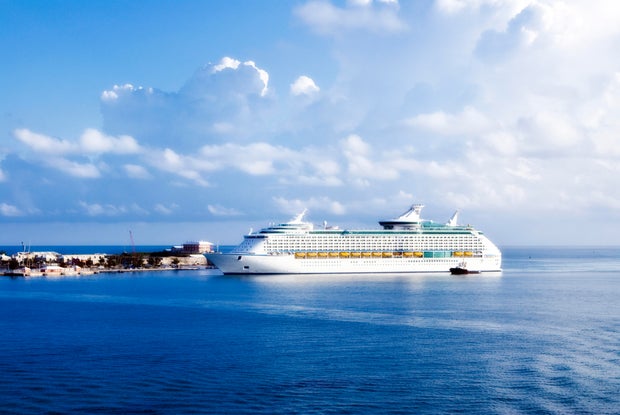CBS News
Study identifies 14 risk factors for dementia, including 2 new ones. Here’s what you can do about them.

Nearly 7 million Americans have Alzheimer’s disease, a specific type of dementia, and a new study is highlighting two new risk factors to be aware of.
In the study, published Wednesday in The Lancet, researchers said considerable new evidence supports adding vision loss and high cholesterol to the list of potentially modifiable risk factors for developing dementia, a group of brain function-altering conditions.
The authors note the importance of the findings for possible prevention as the number of people living with dementia is set to increase worldwide.
“Policy makers should prioritize resources to enable risk reduction to prevent or delay dementia and interventions to improve symptoms and life for people with dementia and their families,” the authors write.
Vision loss and high cholesterol join 12 previously known risk factors for the disease, including:
Luckily, a lifestyle that’s good for the rest of your body is also good for your brain.
Research suggests maintaining a healthy diet, keeping the mind and body active, and avoiding smoking and excess alcohol may help improve your odds of developing dementia.
“The prevention approach should be directed at addressing risk factor levels at an early stage and continuing throughout the life course,” the authors add, who also included specific prevention guidance for each identified risk factor.
For the two latest, the authors suggest detecting and treating high cholesterol from midlife and making vision loss screening and treatment accessible.
For hearing loss, the authors suggest making hearing aids accessible for people with hearing loss and decreasing harmful noise exposure to reduce hearing loss. To prevent head injuries, wear helmets in contact sports and on bicycles.
“Ensure good quality education is available for all and encourage cognitively stimulating activities in midlife to protect cognition,” the prevention guidance continued. “Prioritize age-friendly and supportive community environments and housing and reduce social isolation by facilitating participation in activities and living with others.”
Air pollution is considered a lesser known risk factor, but one that’s becoming increasingly relevant as wildfires and poor air quality make headlines.
In a study last year, researchers estimated nearly 188,000 dementia cases in the U.S. each year may have been caused by air pollution.
More recently, a study presented at the annual Alzheimer’s Association International Conference on Monday found exposure to wildfire smoke could be particularly harmful to brain health and may raise the risk of being diagnosed with dementia. The study is currently undergoing peer review.
“Wildfires can be very disruptive to daily routines, and so it’s possible that the stress, the anxiety, the disruption of day to day life, could unmask an underlying dementia and somebody who has not been diagnosed,” a lead researcher of the study Holly Elser told CBS News.
Rebecca Edelmayer, the vice president of scientific engagement for the Alzheimer’s Association, told CBS News the findings are an “important piece of the puzzle” in understanding the types of risk factors that may impact brain health and cognitive decline.
“What this research is building upon is that they’re now focusing on a very particular kind of contributor to that air pollution, that being wildfire,” Edelmayer said.
CBS News
Winds still driving Mountain Fire that’s destroyed hundreds of homes in Southern California

Watch CBS News
Be the first to know
Get browser notifications for breaking news, live events, and exclusive reporting.
CBS News
Kindness 101: Celebrating individuality with a young green hero

Watch CBS News
Be the first to know
Get browser notifications for breaking news, live events, and exclusive reporting.
CBS News
Royal Caribbean cruise ship rocked by rough weather, images show damage

Bad weather rocked a Royal Caribbean Crusies ship near Spain on Thursday night, causing damage aboard the vessel and requiring the ship to make an unexpected stop to allow a guest to medically disembark.
The Explorer of the Seas was traveling from Barcelona, Spain to Miami, Florida, according to CruiseMapper, a website that shows the position and routes of cruise ships.
John Greim/LightRocket via Getty Images
The vessel was near Tenerife, the largest of Spain’s Canary Islands, when it was hit by an “unexpected wind gust,” Royal Caribbean Cruises said in a statement.
The wind caused the ship to experience “sudden movement,” the cruise line said.
Jonathan Parrish
One person aboard the ship described the movement to CBS News as a “listing,” which means the vessel is tilted to one side. Photos show items knocked down, shattered bottles in a bar area, and other mild damage from the incident.
Jonathan Parrish
The cruise line said one passenger was injured and “requires additional medical care.” The ship is making a stop in Las Palmas, Spain, for a medical disembarkation. The cruise line did not offer any additional information about the unidentified passenger’s condition.
The Explorer of the Seas is a 1,020-foot vessel that can hold up to 4,290 guests and 1,185 crew members, according to an Royal Caribbiean Cruises fact sheet. It includes an ice skating rink, a mini-golf course and a rock climbing wall on its fifteen passenger decks. It is registered in the Bahamas and has been sailing since 2000.










